|
Welcome Bernd! Thanks for taking some time to chat about writing. First, a few quick-fire questions: Skiing or surfing? Cats or dogs? And what is the farthest north you have ever traveled? Skiing, but preferably cross-country which can sometimes turn into downhill-skiing. Dogs! The North Cape in Norway. Flying over Iceland, Greenland, and further North doesn’t count. "Skiing, but preferably cross-country which can sometimes turn into downhill-skiing." Many of us (myself included) have longed to travel to distant places these past two years. You divide your time between Istanbul and Berlin, so can you give readers your top restaurant or cafe recommendation for both cities? For Istanbul it’s Çiya Sofrası, located in Kadıköy on the Asian or Anatolian side as Turks say. Two coffee places for Berlin, if you allow, very different in character: Café Savigny in Charlottenburg (rather cozy, some outside seating, with many newspapers) and Café Einstein in Tiergarten (old villa, Viennese style, very nice summer garden). Few writers struggle to start books and almost every one I know of struggles to finish them. As a prolific writer of non-fiction who has completed a number of books, what do you think the key to finishing a book is? Are there any habits, strategies, or frameworks that have helped you reach the end? Writer’s block is not really part of my experience. I never had to force myself and mostly had tight deadlines from my editors which helped. The expectation to see the book in print, my impatience, really helped. In retrospect, I wish I had taken more time with some of the books, just to enjoy the time spent with them more. I more or less see all of them as “research projects”, even though they didn’t result in academic books. Topics explored in your books include the cultural history of orchards, human fascination with birds, and even such concepts as night and winter. As many writers of fiction (I am thinking either historical or science fiction specifically) struggle to feel ‘qualified’ enough to write to this level of depth and accuracy, what advice do you have for writers who want to write like experts in a particular field? I hope I don’t come across with an expert’s attitude. I often see myself as mediating between experts and a readership that’s interested in a particular, popular topic. It’s really important to have a competent editor and one or two experts from the field who can check books for accuracy before they go into editing. For university presses this is common practice, as you may know. So I recommend that writers connect with a researcher in the field who may not have the time or inclination to write a popular, non-academic book him or herself and is happy to comment. "I often see myself as mediating between experts and a readership Extreme North, your most recent publication, has been described as a cultural “cabinet of wonders” as you explore the northern cultures that gave rise to both historic and popular myths about the north. What drew you to this topic and do you feel you achieved what you set out to accomplish? In part, it developed from my work and book on the experience of winter across the ages titled Winterlust. My travels in Scandinavia, the study of the Swedish language, an interest in history and in the making of myths or fictions also play a role here. Without having all these images and memories from my trips this book wouldn’t have been possible or turned out very differently. I wanted to pull different threads together, most importantly the connection between Romanticism, anti-semitism, and the fictions of white supremacy and ‘Nordic’ superiority. Extreme North is not a cultural history of the Northern cultures themselves, which would easily have filled a thousand pages, but the ways in which ideas about “the North” have been appropriated and instrumentalized for other purposes. And yes, I’m really quite satisfied with the result and the reactions to the book have been mostly positive so far, but I’m not saying that the story is ‘complete’ or couldn’t have been told in other ways. "Extreme North is not a cultural history of the Northern cultures themselves, which would easily have filled a thousand pages, but the ways in which ideas about “the North” have been appropriated and instrumentalized for other purposes." One of the central threads in the book is how these northern myths have been used to justify racist and eugenic ideologies that still pervade Western culture today. As a writer who draws great personal and creative inspiration from the myths, I find this both heart-breaking and critical to address every time this comes up in conversation. My question for you is this: what is your message for creatives who draw from this intriguing and often problematic body of myths? This is a very important question, but I’m not sure if I have a satisfying answer. I think it’s important to keep in mind that these myths have been passed on from generation to generation, sometimes across language barriers and certain religious filters. So I would not see them as absolute truths, there always remain some questions. I’m skeptical when someone tells me that this is how it “really” happened. There are some really interesting books that tackle history from a more scientific or anthropological point that may help to put things in perspective. Please let me recommend Neil Price’s Children of Ash and Elm. Everybody has to decide for himself or herself how far to go with using the stories and myths. I don’t feel like being in a position to tell people what they should do. At the risk of asking too grand a question, what would you say is the greatest gift that cultures of the north have to offer the rest of the world? If we refer to the indigenous cultures of the North, I find astonishing how well, over several thousand of years, they adapted to a really challenging environment and climate. If we talk about non-indigenous Scandinavian culture, I’m impressed by the high standards of education, health care and social welfare in general - the ‘Nordic’ model, even though I’m aware that there are some cracks in the system. There is also a sense of being in touch with nature and enjoying the outdoors as well as the comfy indoors that I see in many Scandinavians and that I find adorable - in particular, concepts such as friluftsliv and hygge. Not sure if it belongs here, but I’m a big fan of the Danish movie directors Susanne Bier and Thomas Vinterberg (and their films). And of actors such as Paprika Steen and Mads Mikkelsen! Last, but not least, where can readers find a copy of Extreme North? And where can they discover your other publications? My friend Brendan from New York told me that you can find it on the table with “notable nonfiction” at the fabulous Strand Bookstore. Or any other bookstore where you may have to order it. Also for the other books. Discover more from Bernd Brunner by visiting his website!
0 Comments
Welcome Andrew! Thanks for taking some time to chat about writing. First, a few quick-fire questions: Who is the greatest Viking of them all? Which is the scariest monster you’ve ever read about? And what is your writing/translating beverage of choice? Technically not a Viking, (Vikings are Norse pirates) but I’m going with Leifr Eiriksson. Probably the most famous Norseman of them all, he actually was a peaceful man, the first European to set foot in the Americas (491 years before Columbus,) bringing Christianity to Greenland, and rescuing shipwreck victims. Scariest monster goes to Ungoliant from J.R.R. Tolkien’s legendarium. The Queen of the Spiders even scared Morgoth, Middle-Earth’s equivalent of Satan (who makes Sauron look like a schoolyard bully)! I also have arachnophobia, and Shelob is hard enough to watch in Return of the King, and Ungoliant is Shelob turned up to ten-thousand! I drink both tea and coffee, but I’m going to go with tea. Especially a P.G. Tips builder’s brew! "Scariest monster goes to Ungoliant from J.R.R. Tolkien’s legendarium." We both share a love and passion for Viking history, particularly the epics such as Beowulf. What drew you to study these texts and, in particular, to explore them through your own translations? I first got interested in history at age four because of Indiana Jones. I wanted to be an archeologist, so borrowed all kinds of books on ancient cultures, especially on ancient Egypt. A few years later, my focus shifted to medieval history. Later, I found out that Tolkien specifically based his works on Anglo-Saxon and Norse cultures, so my studies soon began to focus on the early Middle Ages. When I was 9, I was diagnosed with Friedrich’s Ataxia, a rare genetic disorder, similar to Muscular Dystrophy, and my pursuits became more and more academic, and less archeological. "Later, I found out that Tolkien specifically based his works on Anglo-Saxon and Norse cultures, so my studies soon began to focus on the early Middle Ages." Several years ago, I took a course on Old English from Michael Drout at Signum University (you can take the class as an Anytime Audit). At the end of the course, Professor Drout suggested we read Beowulf in Old English to become better acquainted with the language. Rather than simply read it, I decided to translate it into modern English and write an extensive commentary. Congratulations are in order for the publication of your new translation of Beowulf! Talk us through the journey of exploring this famous text and rendering it in this new translation. What are you hoping that readers take away from reading this story in this fresh light? For the original text I used a book called Klaeber’s Beowulf. When coming across words I was unfamiliar with I would use the Bosworth-Toller Old English Dictionary. Sometimes I chose to go with more archaic terms because it fit the alliteration better. I used more recent scholarship and that was reflected in the way I translated some of the words or phrases, for example: a damaged word in Line 587 is typically read as “hell,” but I offer the reading “hall” which gives the line a very different context. I hope that this new translation, with its alliteration, will harken back to older translations, such as those by Francis Gummere and John Clark Hall, but will also give it the accessibility of modern translations. "I hope that this new translation, with its alliteration, will harken back to older translations, such as those by Francis Gummere and John Clark Hall, but will also give it the accessibility of modern translations." Beowulf is getting a lot of attention right now with Maria Headley’s new translation, a very modern take on the tale, which was released a short while back. What are your thoughts on modernizing ancient texts like Beowulf and why is it important that these stories continue to be told today? While I don’t mind modernization of ancient texts, I actually had a much different intention for my translation. I feel that many recent translations modernize it so much, that it loses much of its beauty. I understand that pre-modern texts can be difficult to read, (that is the main reason I provided an extensive commentary along with the translation) but often they lose their alliteration and meter, which is much of poetry’s appeal. In talking with Dr. Alison Killilea and Norse epics student Rosemary , I complained about the lack of quality film adaptations of this incredible tale. Do you have a favorite film adaptation of Beowulf or do you have any ideas as to why it has been so hard to capture on the silver screen? My favorite movie adaption of Beowulf has to be The Thirteenth Warrior. Based on Michael Crichton’s novel Eaters of the Dead, it’s not a straightforward Beowulf adaption. It follows an Arab, Ahmad ibn Fadlan (portrayed by Antonio Banderas,) who gets caught up in an adventure with a band of Vikings, led by a warrior called Buliwyf (portrayed by Vladimir Kulich.) If you are familiar with Viking history, you may recognize the name ibn Fadlan; he was an ambassador from Baghdad, who gave an eyewitness account of a Viking ship cremation on the River Volga. Crichton wanted to show a possible historical basis for Beowulf, so he was trying to give a more natural rather than supernatural explanation for the monsters in the story. There are some anachronisms (such as Buliwyf wearing plate armor in one scene) and other inaccuracies, but the movie is well written. While not a perfect adaptation, it is probably the most entertaining adaptation I’ve seen. "My favorite movie adaption of Beowulf has to be The Thirteenth Warrior." As an author of fiction set in a Viking-like world, I often find myself challenging tropes associated with Vikings in popular culture. What false assumptions about Vikings or Germanic culture do you hope to address through your work with these ancient texts? A lot of popular culture portrays Vikings or Germanic people as people who would only raid and plunder, but I hope that with my different works people will appreciate that Vikings had their own culture and that they even had deep thoughts. When you take the time to study their culture and way of life, barbarian is no longer an adequate way to describe them. Can you give us a sneak peek of what your next major project will be? Any hints or perhaps a little snippet to get readers excited? My next big project is a trilogy of historical fantasy novels called Guthbrand’s Saga. I am hoping to have these novels traditionally published, so if you’re an agent or know of someone who is, feel free to contact me! The first book is completed and I am currently working on the second book. "My next big project is a trilogy of historical fantasy novels called Guthbrand’s Saga." The books are set in early 6th Century Norway, and are prequels to Beowulf. Book 1 is called Troll Bane. The story opens with Trolls raiding farmsteads bordering the wilds of Jötunheim. A jarl named Guthbrand and his small warband set out to hunt them down, but the closer they draw to a battle Guthbrand knows they can't win, his men's lives weigh heavy on him. Guthbrand’s Saga has characters and creatures from Norse mythology and legendary sagas. Characters share songs and folktales inspired by Old Norse sources. I paid special attention to surrounding this fantasy-infused story with historically accurate details and placing it in precise geographical locations so that you can even follow the party’s journey on a modern day map. I actually provide a map with the Old Norse place names. Like so many fantasy authors, I have been greatly inspired by the works of J.R.R. Tolkien. Like him, I have tried to create an expansive world inhabited by people and creatures with their own rich cultures, languages and history. "I paid special attention to surrounding this fantasy-infused story with historically accurate details and placing it in precise geographical locations so that you can even follow the party’s journey on a modern day map. I actually provide a map with the Old Norse place names." Welcome Rosemary! Thanks for taking some time to chat about writing. First, a few quick-fire questions: What is your favorite kind of beverage to drink while writing/researching? Where is the best place to grab a coffee or tea or beer in Cork? And if you were put in charge of casting for an upcoming Beowulf movie then which actor would you recruit to play Beowulf? Thank you for the opportunity! I’ve been making iced coffees at home lately since the weather has finally picked up, so right now it’s those! Cork is blessed with so many lovely cafés. I tend to go to Vanilla and Co. on Cook Street, or Dukes Coffee Company on Carey’s Lane. For a Beowulf movie I would probably have to choose Henry Cavill. He’s fantastic in The Witcher so I’m sure he could do the poem more justice than what’s been offered so far. "For a Beowulf movie I would probably have to choose Henry Cavill. He’s fantastic in The Witcher so I’m sure he could do the poem more justice than what’s been offered so far." I’ve enjoyed hearing about your work on Beowulf through Twitter as well as on your blog, Fafnir’s Treasure Trove. I’ve found many academics are perhaps hesitant to engage the public on social media or through more personal platforms like blogs. What prompted you to start the blog and engage a wider audience? My blog actually began as part of my continuous assessment during my MA, so Dr Maureen O’Connor in UCC School of English and Digital Humanities has to get credit for it! I fell down a rabbit hole using it because it’s a space for testing out potential topics before diving into a conference paper. I think there’s this fear of your great idea being “stolen”, which I can understand but it can certainly happen in more traditional spaces as well, if someone stumbles across a note you publish, an article that they turn into a chapter or book, a conference paper they listen to, etc. You always run that risk. Social media has become more necessary for networking, especially since it isn’t safe to hold physical events right now. I think it is definitely going to continue to hold a place in academia whether we like it or not! Congratulations on completing your MA! Such a pursuit is a huge undertaking which I feel often goes unrecognized, especially by those who have not run the gauntlet of a graduate program. What advice would you have for writers who are considering taking a history-related MA? What are some potential upsides or downsides, especially as it relates to authors? Thank you! I think writers considering it need to take into account how much time is actually consumed by an MA. I only had around six hours of class time a week, sure, but the amount of preparation you need to put in before those classes is insane. Worth it but definitely mad. I find it difficult to only put in a half-hearted effort into anything I do so the MA quickly became my entire existence. I did a lot of extracurriculars during my bachelors and I had to pick and choose what I could keep doing and what I had to give up, because it was going to be impossible or quite unhealthy to continue trying to balance. "I only had around six hours of class time a week, sure, but the amount of preparation you need to put in before those classes is insane. Worth it but definitely mad." So be prepared to not have as much time to dedicate to other aspects of your life. Also be prepared for at least some people to not quite understand why you chose this discipline. I have no regrets whatsoever and the medieval continues to be the main feature for my life right now. But I definitely got a few interesting comments from others who just didn’t understand how it is relevant. I’m sure it sounds like a foreign language to my friends who have to listen to me babble on! One of your great passions/obsessions is the epic poem Beowulf! I was first ensnared by this spectacular piece of literature through Seamus Heaney’s translation. So I’d love to ask this: Why study Beowulf in 2021? What meaning or purpose does it have to our society hundreds of years later? Obsession is a good word to use! When I was in first year we actually used Heaney’s translation as well. As a proud Irish woman, it’s a great way to lure us in to the magic that is Old English literature. What we’re seeing right now is this wide reassessment of our relationship to gender and what our identity as a collective group of people or as individuals actually is. Part of the counter argument given to us is that “well back in the old days men were this, that, and the other, not this sort of tripe you’re banging on about!” "When I was in first year we actually used Heaney’s translation as well. As a proud Irish woman, it’s a great way to lure us in to the magic that is Old English literature." Take masculinity for example. You have many who argue that Beowulf is a perfect example of the traditional masculinity they feel is threatened by the social progress we’ve made in recent years. But looking at the poem, the image we’re given is actually so much more complicated but scholarship is only slowly starting to acknowledge that now. We’re also seeing a huge resurgence of the medieval in pop culture the last decade or so. But that leads to people falling down a rabbit hole and if we aren’t providing more nuanced arguments showing that gender and the medieval world are more complicated, where are they going to end up? More dangerous, extremist platforms for example. So it is definitely quite relevant considering both pop culture and the political scene in many countries right now! We also have to remember that a lot of narrative tropes that are still used in literature, film, etc. as well as the English language itself were shaped in these periods. Neil Gaiman, author of such best-sellers as American Gods and The Ocean at the End of the Lane, famously said that reads Heaney’s translation of Beowulf whenever ‘his blood needs stirring’. What are a few of your favorite translations and what unique features draw you to each? My go to for work is R. D. Fulk’s because he translated the entire manuscript and provides the Old English texts as well, so you can really dive into the original language, which is something that I think is quite necessary for the sort of work I’m doing! The use of Tolkien’s is quite dedicated to the structure of the Old English language so I like that one for those reasons. I also quite like Maria Dahvana Headley’s, which was only published last year! She uses terms like “bro” quite often, which is a great way of showing the comitatus society under a new light, especially younger audiences that might be used to modern “lad” culture as we call it here! The poem is undeniably a very male-centered poem after all! I am of the opinion that every film adaptation of Beowulf, at least the half-dozen that I’ve seen, are worse than bad… terrible actually. Do you think there is a decent movie adaptation of Beowulf out there? And what do you think makes the magic Beowulf hard to capture in the medium of film? I’d have to agree with you! There is an animated version for children that came out in the 90s but the narrative is heavily simplified. Accurate but simple. Though I imagine a 25 year old academic that is truly obsessed with the poem may not have been their target audience. The poem is so difficult to capture on film compared to maybe a later poem like Chaucer’s Canterbury Tales due to the long speeches and dialogue. A lot of those side stories we get in the poem, like the mention of Heremod and Sigemund, or the past feuds the Danes and Geats were both involved in, give us a lot of substance for Beowulf’s character. They truly inform the reader about Beowulf himself. For example we have at the end of this story about how problematic Heremod was a king, and right at the end of that we have a link back to Beowulf himself, with the poet stating that “violence found a home in him”. So the poet inserts Beowulf into this story and that warns the reader of what is yet to come. But for a film that you watch, that complicates it too much. Audiences want at least some bit of action and not just two hours of speeches. So a clean timeline usually means removing those speeches but that then removes a lot of the substance that shapes main characters. "Audiences want at least some bit of action and not just two hours of speeches. So a clean timeline usually means removing those speeches but that then removes a lot of the substance that shapes main characters." So what do directors do to fix that? Change the narrative completely! So then it’s not even accurate! Filmmakers have to find a way around this. There’s violence in the poem of course but there is more to it. Those speeches are vital because Old English poetry was shaped by the oral traditions of their culture which were adopted into their writing! Removing that is removing a lot of what makes the poem so interesting. Can you give us a sneak peek of what you are working on right now? A few hints or an idea of what to expect in the next few months? I’ve definitely tweeted about this recently enough but I’m currently working on a paper for a conference this June. The conference is Death and the Afterlives of Medieval Mystics. I’m looking at the moral attitudes towards feminine bodies, pleasure, and sin in The Awntyrs off Arthure and the possibility that these attitudes were inherited from Old English hagiography. So I’m contrasting Gaynour’s Mother, the language used to describe her, etc. to some female saints from Ælfric’s Lives of Saints. I’m also studying Old Norse grammar as my supervisor wisely advised me that if I want to work more with Old Norse literature, it would be good to have the language. I covered Old English grammar last year during Ireland’s first lockdown! "I’m looking at the moral attitudes towards feminine bodies, pleasure, and sin in The Awntyrs off Arthure and the possibility that these attitudes were inherited from Old English hagiography." Last, but certainly not least, where can readers find more of your work and stay updated on your most recent publications? Other than my blog and my Twitter account, I usually end up posting papers on my Academia account as well. Twitter is probably the best place as I often tweet out my thoughts as they come into my head. You’re also guaranteed pictures of my cats. If you are in academic circles, be sure to follow Rosemary's Academia account!
Welcome Thilde! Thanks for taking some time to chat about writing. First, a few quick-fire questions: Dragons or Griffins? Super spicy or super sweet? And if you were to take an all-expenses paid one week vacation to any of the Nine Realms of Norse mythology, where would you go? Dragons! Super spicy! And uhh… Vanaheim! Since it’s the home of the fertility gods, I think a trip to Vanaheim would include some amazing (maybe even spicy?) foods. Perfect for a relaxing trip. Though you’ve lived all over the world, you originally come from Denmark. My family is from Norway and I have loved visiting, especially when visits involve hikes in the fjords. However, I think that Scandinavian countries (Norway, Sweden, and Denmark in particular) have an inflated international reputation as a kind of ultimate ‘utopia’. Tell us one thing about living in Denmark that isn’t so great that most people might not know about. You’ve probably heard about it from science fiction stories, but a utopian society will inevitably create a lot of rules and laws for the greater good in order to maintain its utopia. Denmark is no different in this regard. Imagine this: it’s a cold windy night and you’re walking home. It’s hailing, windy and there’s not a single car or bike on the road. You’re still going to wait a minute on the sidewalk for the pedestrian sign to turn green. If you get the sudden urge to pay a visit to your Danish friend, then you better call to make an appointment. Don’t you dare just “step by”. Us Danes need time to prepare for the straining social interaction of saying “Hello, how do you do?”. Now you want to buy a car? Hmm… That consumes a lot of fuel, and that’s bad for the environment… Tell you what, if you pay 200% of the car price in taxes we will let it slide… for now. "...a utopian society will inevitably create a lot of rules and laws for the greater good in order to maintain its utopia. Denmark is no different in this regard." While the base principle of protecting everyone with laws and unspoken rules is inherently good, there are many of both in a Utopia like Denmark. Taxes, special duties plus VAT are very high but that’s the price of a utopia. If the government says jump, we jump. I think that’s something that people rarely talk about on the international scale, but as I see it, this is both the reason that Denmark works as a utopia and the reason it’s tough to replicate. You can’t pick and choose. It’s all or nothing. You’ve written several books and so you know what it takes to bring a story from conception to completion. What advice would you give to new authors who are working on their first book and are feeling ‘stuck’ somewhere in the middle? Yes, while only Northern Wrath has been published at the time of this interview, I’ve already written books 2 and 3 in the series and am working on a new series, so I have been down this road before. Often my productivity slows down in the middle of a book, because the excitement I started with has kind of dissolved and the ending seems so very far away. When this is the problem, there is really only one solution that I have found. Writing a little every day until you can see the light at the end of the tunnel. It’s easier to write when it becomes a habit, so keep at it, you’re on the right path! That being said, when I do have good writing habits and then get stuck, it’s usually because I’m on the wrong path. I’ve written myself into a corner and I’m not headed in the right direction anymore. "Often my productivity slows down in the middle of a book, because the excitement I started with has kind of dissolved and the ending seems so very far away." What’s needed in those situations is a reassessment of what I’ve written. I go back to when the text was last working for me, and try to figure out what needs to change going forward for it to continue to work. Once I’ve found the issue, I rewrite the concerned section. Sometimes I catch the potential issue early enough that it can be fixed by simply adapting my plans for future chapters instead. Usually though, some immediate rewriting is needed. To new authors I would say the following. As you write through the tough middle of a book remember the fundamental rule: if the writer is bored, the reader will be bored. When you sit in the middle and are not as energetic as when you started, find something in the story that you find exciting to drive you along. If the writer is having fun, chances are that the reader will too. "To new authors I would say the following. As you write through the tough middle of a book remember the fundamental rule: if the writer is bored, the reader will be bored." Our paths toward Viking fiction seemed to have traced a similar arc in terms of falling down the rabbit-hole of our heritage. In what ways has writing Viking-themed fiction shaped your own personal identity as a Dane and as a citizen of the world? I was born and raised in Denmark, but when I was 10 years old, I moved to France with my family. In France, I quickly fit in, learned the language and made a life for myself, and the longer I lived there and the more I travelled and found other places where I could belong, the more I wondered what my connection to Denmark truly was on a cultural level. Looking into the Vikings gave me an answer. It gave me a connection to Denmark that I previously did not have, even when I lived there as a kid. "Looking into the Vikings gave me an answer. It gave me a connection to Denmark that I previously did not have, even when I lived there as a kid." When my family moved away from Denmark, we took a piece of the Norse culture with us. Not the utopian values described above, but some core cultural traits. There was a focus on the family, a lust for exploration, and hospitality was a prime value that I was taught in the home. These were the main traits we exported from the Norse culture and when I began to research the Vikings, I found all of those same values reflected in the ancient Norse culture (primarily evidenced in the Havamal). Finally, I could explain those pieces of my own hybrid-culture. At last, I could define who I was, and I was that way. Before, the hardest question I knew was: “where are you from?” because it felt like I was not from anywhere. I was not from Denmark and I was not from France, so I could never provide an answer that was satisfying, at least to myself. Now, thanks to the Vikings, I can answer the question more easily, because I am from all of these places. Today I may answer that I am from Denmark. Yesterday I might have said France. Tomorrow I may mention my time in England or my time in South Korea. I have taken a piece of all of these places with me. I am not from any one of them, I am from all of them. Northern Wrath, the first book in your Hanged God trilogy, was released in October, 2020. Walk us through your experience of the launch day and the weeks following: What were the highlights? Any surprises? And what advice would you have for authors with an upcoming debut launch?
My fear about a launch was that it might feel anticlimactic. So, a big surprise to me was that things started happening way before the launch date. ARCs (Advance Reader Copies) came out in June and reviews started to trickle in shortly after that. From June until October, I felt like there was a little something happening every day. Might be someone posting a photo of their ARC, someone posting an early review, or an interview request. A little something almost every day. That meant that launch day was not so much a sudden burst of celebrations soon to be forgotten, but more of a natural conclusion to the building excitement. For authors preparing for their first launch, I would hence say: there are a lot of small things you can do before the launch that will get people excited about your book and get them to pre-order it, and take part. Talk about your book, online or in person, and get some excitement going gradually instead of relying purely on the launch itself. That way you extend the celebrations. It certainly made it a great experience for me. "For authors preparing for their first launch, I would hence say: there are a lot of small things you can do before the launch that will get people excited about your book and get them to pre-order it, and take part." One of the historical themes in Northern Wrath is the erasure of ancient Viking customs as Europe embraced Christianity. What parts of this culture did you really want to highlight through the narrative and what lessons have Vikings from the past taught you about living today? At the forefront of my narrative is the idea that culture dictates everything else. The Vikings acted as they did because of their belief-system, which dictated their culture. If you truly believe that in order to get to the cool afterlife, where the awesome gods feast, you first have to die an honourable death in battle… Well then you have to go out and get into some fights to find those battles. Otherwise there’s absolutely no chance of you ending up in that awesome hall in the afterlife. So, you need to go out and find some epic battles, and if you live on a land surrounded by the sea, then you need some good ships that can both carry you far over tricky waters, and will also double as quick escape vessels. As such the infamous longships appear, and people make their life around these ships. There are, of course, the hopeful warriors who search for a worthy battle, but there are also the ship-makers, the wood-workers, and the weavers who suddenly have plenty of work. A whole community and way of life forms around the simple quest of needing to find a worthy battle. "At the forefront of my narrative is the idea that culture dictates everything else. The Vikings acted as they did because of their belief-system, which dictated their culture." It is no mere coincidence that there was a desperation in other countries to turn the Scandinavians towards Christianity, for their belief is what fueled their way of life. When they eventually did turn to Christianity, that way of life slowly lost meaning and purpose, until it was no longer sustainable. Belief being essential to someone’s culture was an interesting concept to me, and it is really around this idea that I built Northern Wrath. As to lessons from the past, I have learned many things. Most of all I learned a lot from spending my summers sailing with a Viking warship, and I feel like I’m still learning from those continuing experiences. Chief among them is the realisation that while individual quests can be grand, a journey has more meaning when there are others aboard. You can’t sail a warship alone, and even if you did manage it, you would not survive the battle at the other end. Your next series is a fantasy adventure set in ancient Korea, a country in which you have lived and have a deep fascination with. How has the process of historical research been for this new novel compared to your first series as you explore territory across cultural lines and over language barriers? Yes, the Hanged God series has been written, and so while book two and three get ready for publication I’m writing my next series, set in 7th century Korea. Writing historical based fiction has two distinct requirements. The writer evidently needs to do research into the historical era, but they also need to know how to interpret the discoveries they make to modern day audiences. Personally, I have encountered two main challenges in my historical research into Korea. The first was a lack of accessibility to primary sources. Most of the material I base my research on for this up-coming series is only available in Korean, but since I both speak and read Korean, there was no significant language barrier for me. Except on the occasions that involved texts written in Hanja with no transcriptions into modern day Korean script. Language was not the issue, but there has been much less research done into this era of Korean history compared to the Viking Age in Scandinavia. A lot of what has been done I was only able to access while being in Korea. Thankfully, in 2019, before the world shut down, I was able to take research trips across Korea. I visited all of the important sites, visited museums, and located elusive texts at distant libraries. I was also able to learn traditional Korean archery, which became integral to the story. I learned a lot during that time, and without that trip I would not be able to write this story. Writing from half-way across the world, I would not be able to acquire about 70% of the knowledge I gained during that time. "I visited all of the important sites, visited museums, and located elusive texts at distant libraries. I was also able to learn traditional Korean archery, which became integral to the story." The second issue I encountered is a little more complex. Let me explain… When I was doing research into the Vikings, I started with the same knowledge base as most Danes and Scandinavians. There were certain things about the Vikings that I knew, and other things I thought I knew that were completely wrong. This meant that I had a really good grasp on what most people in modern day Scandinavia knew about the historical period I was writing about and I also knew what misconceptions I had to fight in the text. With the Korean story though, I did not start with the same knowledge base as most Koreans. Finding out what kind of basic knowledge most Koreans have about the period presented a challenge for me. Every time I asked, I received wildly different answers. To solve this issue, I ended up having to look into the base history curriculum taught in Korean schools and comb through history books made for school kids. "Finding out what kind of basic knowledge most Koreans have about the period presented a challenge for me. Every time I asked, I received wildly different answers... I ended up having to look into the base history curriculum taught in Korean schools and comb through history books made for school kids." Last, but not least, where can readers buy a copy of Northern Wrath and where should they go to keep track of your upcoming publications? Northern Wrath can be found or ordered at any bookshop. Links to buy can be found on my website. News about upcoming projects can also be found on the site. Otherwise, I check Twitter whenever I’m summoned, and happily engage there. So, if you want to interact that is where I can be found.
Welcome Hannah! Thanks for taking some time to chat about writing. First, a few quick-fire questions: Tea or coffee? Oceans or Mountains? And if you could choose any forest creature to have as a tame pet then which would it be? Hey Joshua, thanks so much for having me. Coffee! Mountains! Preferably coffee on top of mountains. As to taming forest creatures, after much deliberation I’ve got to say… a moose. Majestic, unorthodox, and unexpectedly deadly! "...after much deliberation I’ve got to say… a moose. Majestic, unorthodox, and unexpectedly deadly!" You and I are both Canadian authors, a bit of a rarity on the global writing scene. How did being a Canadian influence or impact your path toward publication? Do you have any bits of wisdom to share with unpublished Canadian writers who are currently querying? First of all, I’m so glad we connected! Because you’re totally right, being a Canadian author is a bit of a rarity. That’s likely the biggest impact being Canadian has had on my journey; I had to go it alone for a while before I found friends online who wrote similar things. That sounds a bit sad though. On the flip side, I love how cozy the Canadian author world is! I’d encourage Canadian writers to get established in the online writing communities on Instagram and Twitter. It’s difficult to establish relationships with other writers in real life in a land of big distances and small towns, but they’re crucial! Fantasy, Historical Fiction, and Science Fiction are genres that are very distinct in my mind but are often grouped together by readers and reviewers. As a writer of all three, what key elements make these genres unique for you? Would you categorize them separately or as three strands of the same branch of fiction? I think I have to put myself somewhere in between. They’re separate, as in fantasy is magical and stretches beyond the confines of our daily experiences, sci-fi leans heavily on tech and is probably in space or the future, and historical fiction is set within the confines of the past. But the genres certainly harken to one another, at least in the way that I write and interact with them! So much of fantasy is rooted in history, in the cultures and customs and impressions of former days. So much of sci-fi requires imagining the fantastical, things beyond the world in which we now inhabit. And I, for one, very much appreciate a historical fiction with subtle elements of the mysterious and glimpses of a world which, again, is beyond my own daily existence. The setting of your upcoming debut, Hall of Smoke, is inspired by the Canadian wilderness and the ever-scenic European Alps. I love this common connection in that my trilogy is set in a wilderness blended from my time spent hiking the Canadian Rockies and memorable trip to the fjords of Norway. How did you handle blending the real and the mythic elements of nature in your trilogy? What is your approach to the natural environment while world-building and how did this come through in Hall of Smoke? I love that you’ve blended the Rockies with Norway! When I look back at writing Hall of Smoke, I made very few conscious choices about the setting of the book. I’m very much a discovery writer, and I’ll admit that I do little to no worldbuilding ahead of time. Almost every aspect of the HOS world emerged in scene as I wrote and looked through the character’s eyes, though occasionally I chose to reference my own experiences and harvest them for senses, and that’s where the distinct flavours of my childhood in the bush and my time in the Alps started to come forward. I wrote what felt natural, a place I wanted to experience, and it came together as a new world! "Almost every aspect of the HOS world emerged in scene as I wrote and looked through the character’s eyes..." Though Viking culture is often depicted as very masculine and patriarchal, I love to remind people that in the Norse myths only half of the warriors that die in battle go to Odin’s feasting hall of Valhalla - Freya demands and receives the other half as she gathers her own forces for Ragnarok in her hall of Sessrumnir. As the author of a Norse-inspired fantasy with a female protagonist, how did you navigate the often-troubled history of Norse representation in fiction and are there any misconceptions about Viking culture that you’re hoping to challenge in Hall of Smoke? Since Hall of Smoke is more on the inspired side of Viking-inspired side, I can’t say that I directly set out to challenge any misconceptions. But I do love Norse mythology for the complexity and prominence of female figures, and I was weary of Viking books and series with primarily male protagonists, stereo-typically “male” priorities and content. I enjoy those stories too, but I wanted something more balanced. And I wanted a female lead with all the skill, dignity, and complexity of the women in my life, and the women I see between the lines of the history books. "I wanted a female lead with all the skill, dignity, and complexity of the women in my life, and the women I see between the lines of the history books." Some of my favorite Viking-themed fantasy storylines come from the world of video games. I know that you and I both share a love of Skyrim in particular! What role do you see video games playing in the arena of fantasy and science fiction story-telling, especially as a writer of fantasy in a more traditional sense? I do love Skyrim! I think video games are a fascinating and undervalued arm of the SFF community. They combine so many artistic avenues into one form - visual art, music and sound, cinematics, general storytelling, etc - and I think game developers do not get half the respect they deserve. Personally, I find gaming frees up my mind, giving me a chance to break out of the world I’m currently working in and immerse myself completely in something new. They’re both a tool for me and an ultra-addicting hobby! Right now you have an untitled sequel to Hall of Smoke on the docket, as well as an adult space opera and an adult romantic fantasy. Can you give us any sneak previews or hints about these tales or when they might be forthcoming in print? Unfortunately, I can’t say much! But the sequel to Hall of Smoke is slated for release early 2022. It’s a stand-alone set in the same world, roughly a decade after the events of book one, and will feature some familiar faces. The romantic fantasy is a bit of a passion project, something I’m keeping relatively quiet to free myself up for creativity. The space opera - I have a feeling this one will be big, in the sense of it may take me a few years to get it right. But I’m so excited to explore that world more! I also have a Gaslamp trilogy floating out in the ether that I’d love to see in print in the next few years. Last, but certainly not least, where can readers purchase Hall of Smoke and keep track of your upcoming publications? Hall of Smoke is available wherever books are sold, in paperback, ebook and audiobook formats. All the latest news is available on my main platform, Instagram, as well as my website. Thanks so much for this opportunity, Joshua!
Welcome Bjørn! Thanks for taking some time to chat about writing. First, a few quick-fire questions: What is your favourite kind of cheese? Do you prefer sailing or flying? And if you were to be thrown back in time to the Viking Age what would your weapon of choice be? Cheers Joshua, thanks for having me! Brie plays an important role in my life (oh great, just started salivating), but generally whatever it is they put on pizza is my favourite. So I suppose my favourite kind of cheese is “melted”. I have never had a chance to actually sail. I’ve been on a few moored ships, including Viking ones, but that’s not quite the same. In a few months I’ll have a chance to sail on a real Viking longship for actual research purposes, which is very exciting, but for now I have to go with flying. I’m immediately tempted to say “a hammer,” because that’s what I’m good with, but I don’t think it would be dangerous enough. Give me two throwing axes. "In a few months I’ll have a chance to sail on a real Viking longship for actual research purposes, which is very exciting, You and I have two rather peculiar things in common - one is a love of Viking lore and history and the other is a degree in mathematics! From one mathematical Viking nerd to another, what role do you see numbers playing in Norse mythology and which are the most significant? Three and nine – three times three. There are the Nine Worlds, three Norns take care of the passing of time, Odin was born with two brothers, and when he hung from Yggdrasil to discover the runes, it took him nine days and nine nights. The twenty-four runes are divided into three eights: Freyr’s aett, Hagal’s aett, Tyr’s aett. "There are the Nine Worlds, three Norns take care of the passing of time, Odin was born with two brothers, and when he hung from Yggdrasil to discover the runes, it took him nine days and nine nights." I often like to emphasize that the actual writing of a book is not usually the hardest part; the most difficult thing is actually getting yourself to sit down and write the damn thing. How do you keep yourself accountable and on track when it comes to your writing schedule? I’m disabled and my illness flares up randomly, which makes it impossible to have a schedule. When things are bad, I do very little – sometimes I can’t even read. Then, once I feel better, I decide that I have been magically cured and can go on working for twelve hours. A day later I am so exhausted that I write nothing. I don’t seem to learn from this, perhaps because I love what I do. So I get better again, reopen Scrivener and start again… then rest… then start again… until the book is ready decades later. Typo! Months. I totally meant months. Earlier this year your novel Children was released, the first book in the The Ten Worlds universe which draws heavily from the Norse Myths. The two main characters, Magni and Maya, are the offspring of well known Norse deities and must reckon with the many short-comings of their parents. What drew you to this theme of familial conflict and in what way did family culture of the Viking Age play into the narrative? I read an article about Paris Jackson, who might never get a chance to become more than “the daughter of”. And that was before Finding Neverland showed Michael Jackson in a very different light – now being “the daughter of” carries even more weight. And I thought – how does it feel to be a child of someone so famous that it’s hard to find a person who has never heard about him? When you meet somebody and their eyes light up, and you know it’s never because of you, but your father? "And I thought – how does it feel to be a child of someone so famous that it’s hard to find a person who has never heard about him?" Thor gets half the mythology for himself. He is possibly the best known and most amusing out of all the Norse deities. His son, Magni, only gets two mentions – once when he saves his father from a troll, then after Ragnarok, when he inherits Thor’s hammer. How does it feel to be “the son of” a God everyone knows and worships, while hardly anybody knows about your existence? When people only care for you because you can be a useful tool to get closer to your father – who doesn’t seem to even remember you exist? I didn’t actually try to recreate Viking Age families. I will have to for Land, the next instalment in the series and I’m already dreading it excited. In discussing your process for writing Children, you mentioned that you rewrote the story 29 times! How do you view the editing process in terms of its purpose and function? Do you have any techniques or strategies to ensure that each draft is better than the previous one? I don’t revise or edit in the “traditional” way – I rewrite the whole book over and over. I go through what I have written before, read it, then try to write it again, but better. Sometimes I will finish a part, then immediately go back to its beginning and start again. There are a few scenes in Children that I have rewritten 40-50 times, and I am still not happy with one of them. "It wasn’t until draft 28 that Maya revealed a crucial piece of information to me – she was claustrophobic from the beginning, but it took me 14 months to find out why." My characters tend to hide things from me for a long time. It wasn’t until draft 28 that Maya revealed a crucial piece of information to me – she was claustrophobic from the beginning, but it took me 14 months to find out why. That last moment scene is one of the strongest parts of the book. The whole story would have made much less sense if I stopped with draft 27. This is an unusual writing process and I wouldn’t recommend it to anyone. Any fantasy author would envy your work as a blacksmith. From your time at the forge, what do fantasy writers get wrong about this age-old trade and about weaponcraft in general? Are there any good online resources for those who want to learn more? People underestimate the amount of time it took to create, for instance, a chain maille vest when each of the tiny rings had to be made by hand, then woven with all the others. That’s why only the richest wore chain maille, while most people put on leather and prayed for luck. It’s similar with swords, especially elaborate ones – those things were worth a fortune, because they took so long to produce. And that’s not including many years of learning the craft before you knew how to do it. "People underestimate the amount of time it took to create, for instance, a chain maille vest when each of the tiny rings had to be made by hand, then woven with all the others." Forges are not hot places, unless it’s summer. The fire is not placed on the ground (nobody’s back would survive that), but elevated. In the winter your face will drip with sweat and your feet will be on the brink of frostbite. That one’s not a book, but I can’t believe none of the many great bladesmiths and blacksmiths who worked on Game of Thrones enlightened Gendry that the forge fire is there for a reason when, twice, he grabbed cold iron and began to hammer it. It took me zero minutes during my first class to understand you don’t do that. Can you give us any hints or clues about your next project? Are you continuing to write the The Ten Worlds universe or are you taking a break to write something else? The Norse Gods claimed all my writing time. I’m working on the sequel to Children, called Land, where some deities and their mortal BFFs go to Earth – the tenth world – to discover Iceland. At the same time I’m fiddling with a series of novellas, How to Be a God, humorous retellings of some myths I haven’t worked into The Ten Worlds yet. I’m not a fan of Neil Gaiman’s take on Norse mythology, so I’m writing what I want to read. Last, but certainly not least, where can readers find your books and keep track of your latest publications? The e-books are on Amazon and Kindle Unlimited. The dead tree versions, both paperbacks and hardcovers, are available everywhere – if your local bookstore happens to be open, you can order the book there, same as with libraries.
The best way to keep track with what I’m up to is to subscribe to my newsletter. I tried Instagram, but I just ended up following way too many bearded Vikings for, um, research purposes. I spend less and less time on Facebook, because their latest redesign is actively hostile towards the users. Instead I write 1000 words in Scrivener and 5000 words in my tweets.
Tea - I love the smell of coffee, but can’t stand the taste. I process bitter flavors more strongly than most. I also don’t like IPAs. Dragon from Pern - Flight, fire breath, AND time travel? Yes, please. "Boromir - After a solid first scene, Aragorn became a generic character with very little depth. Describe a successful day of writing. Where are you? What time of day is it? And how do you measure a solid day’s work? The most successful days, I get at least two hours in before my 6 year old wakes up. I still consider myself to have been successful if I can squeeze in 45 minutes of writing while he’s playing Smash Brothers or watching Pokemon. I have daily goals, to which I hold myself accountable by posting something online almost every day. If my post goes up each day, I was successful in my writing. You are a writer, teacher, runologist, and host of the website Futhark Village. What does your work entail and what drew you into your study of the runes? I was 12 when I first found the runes of the Younger Futhark. The writing system of the Vikings was the coolest thing I had ever seen, and I proceeded to write the next half dozen papers I was assigned in school in runes. My teachers, however, did not appreciate having to translate, even though I gave each of them a key. I got a bunch of Fs on papers, and even detentions. Everything I do through Futhark Village is trying to teach people about the runes. There is a mindset that using runes in magick creates, and I find it easier to talk to witches and heathens who are able to use that structure to their thoughts. Really, I’m just trying to reshape the world in my own image. "The writing system of the Vikings was the coolest thing I had ever seen, and I proceeded to write the next half dozen papers I was assigned in school in runes. My teachers, however, did not appreciate having to translate, even though I gave each of them a key." Also, you left out sword-fighting instructor. I teach medieval martial arts (sometimes called HEMA or WMA) to children. When I am writing combat scenes, I get to think back on battles that I have fought at various events and describe that feeling, that motion. I don’t get to use any of the fancy words like Zornhau or Schrankhut, because my readers won’t know them, but I can describe how they work in the same way that I teach a child how to do them. Fantasy authors love to use runes but I doubt that most have much of an understanding of what they mean. In my limited experience, I believe there are several versions of the runes with different origins, characters, and purposes. What is the history of the runes and why are they still relevant today? Among the Long Branch family of Younger Futharks, I’m aware of at least a dozen, and then there are the Short-Twig and Staveless families. The Anglo-Saxon runesets add extra runes, including the Frisian and sometimes the Northumbrian mini-Aetts. "There are three major groups of runes: the Elder Futhark, the Younger Futhark, and the Anglo-Saxon Runes." I think the word “still” is inaccurate when you ask why they are “still” relevant today. The Runes are relevant “again,” rather than “still,” because modern practitioners of magick have revived their use. We don’t know if they were ever historically used in magick as we currently do, and we can be fairly certain that we are doing at least most of it differently than the ancestors ever did. "I think the word 'still' is inaccurate when you ask why they are 'still' relevant today. For me, the Runes are a system which allows me to structure my intention. If I can phrase what I want through the esoteric meanings of the runes, then I can create a spell that will be more effective. I use it the same way that some witches I know make all of their spells rhyme. Many writers and readers online are fascinated by folklore and participate in social media events such as #FolkloreThursday. However, many may be unaware of some of the more nuanced conversations happening within the folklore community right now. As someone who actively practices your beliefs, can you give us a brief explanation of the origins and implications of Declaration 127? In order to answer this question, I want to back up and talk about the Skinhead Punk movement. The Skinheads were a very inclusive group, inviting everyone who was dissatisfied with the status quo to come, enjoy the music, and share a beer while talking about changing the world. But that’s not how most people think of them today. The phrase “Skinhead” is almost always associated with “Neo-Nazi” now.
Declaration 127 says that Nazis are not welcome in Heathenry. We are experiencing the same thing that the skinheads did in the 70s and 80s, where they are trying to invade our faith and corrupt it to their own evil ends. I will welcome anyone into my faith, except Nazis. I have seen the damage they have done to other movements, and I will not have it happen to mine. "Declaration 127 says that Nazis are not welcome in Heathenry." For a long time I’ve enjoyed snippets of your serialized microfiction series on Twitter. What inspired you to start writing micro-fiction and what advice do you have for a new writer who would like to explore that field? So I shifted to the idea of writing a novel. To keep myself accountable, I post 400-600 words of the story on Twitter each day. It isn’t a lot by comparison to the 1700 words per day you need to do for a typical NaNoWriMo, but I’m not trying to write a novel in one month. I’ve been writing my current iteration of Futhark Village since November, and I am about 60,000 words in. I expect to finish somewhere around 75,000 words. As for advice: I have two things. 1.) Find a system that keeps you accountable. And 2.) When you get writer’s block, pull out a divination system, like Runes or Tarot, and ask them what is happening in this scene that you are stuck on. "I shifted to the idea of writing a novel. To keep myself accountable, I post 400-600 words of the story on Twitter each day. I’ve been writing my current iteration of Futhark Village since November, and I am about 60,000 words in." Can you give us any hints or clues about your upcoming projects? Any sneak peeks or snippets? Futhark Village gets posted to Twitter three days per week, so you can see that just by looking at @futharkvillage. I am reopening my sword school, now that my state is in a safe enough condition to do so. We will all be wearing cloth masks under our fencing masks and wiping all the equipment down both before and after, but the parents and I agree that it is safe to restart. I have also started a dual blog called “Tarot for Rune Lovers” and “Runes for Tarot Lovers” which is coming out twice per week on Tuesdays and Thursdays. "Futhark Village gets posted to Twitter three days per week, so you can see that just by looking at @futharkvillage." I am trying to figure out how to get my coven (Wicca) and my kindred (Heathenry) back together safely. Cakes and Ale (Wicca) and Sumbel (Heathenry) don’t work with a mask on, and the social connection is so much more strained when we can’t hug each other or share a meal. Unfortunately, I don’t really have the energy for more projects right now because my day job, as a math teacher, is back in session for in-person classes. This wouldn’t be so bad if we were allowed to have more than 25% of the students in the building at once, meaning that I still need to teach 75% of my students online while also teaching some of them in person. My 60 hour workweeks in the spring just got even longer. "Cakes and Ale (Wicca) and Sumbel (Heathenry) don’t work with a mask on, and the social connection Where can readers keep track of your latest writing and stay up to date on your future publications? I am most active on Twitter. Writing Twitter and Magickal Twitter and Heathen Twitter are fun happy places, and a liberal use of the mute functions keeps Politics Twitter away from me for the most part. (I am politically active in my own town and region, but the internet is not a place for political activism. It just makes people angry, which I find unhelpful.)
Eric Schumacher presents the harrowing flight of young Olaf Tryggvason from the vengeful sons of Erik Bloodaxe in spectacular close-up detail through the eyes of young Torgil. Caught up in the deceptive schemes of Erik Bloodaxe’s sons, the two boys follow Torgil’s father, Torolv Loosebeard, as they flee to safety along with Queen Astrid, Olaf’s mother, and her retinue. "Eric Schumacher presents the harrowing flight of young Olaf Tryggvason from the vengeful sons of
"In this, he has captured two equally vivid sides of Viking life, the valorous battles fought with Schumacher shines particularly bright while narrating battles at sea. These conflicts, fought in close quarters and on choppy waters on the far-famed Viking longships, were a defining feature of life in the East Sea in the time of Olaf Tryggvason. Through his retelling the reader feels as if they are aboard the ship in the thick of battle alongside Olaf and Torgil as they dodge deadly arrows and thrust their sharpened seaxes.
"Schumacher also infuses his deep knowledge of Viking history into the narrative with details such as Any complaints I had were small. Queen Astrid, though stoic, seemed to me to lack both the tenacity and cunning required of Viking queens of the age, particularly in the first section of the novel. Second, though the narrative follows an epic and heart-breaking arc, I felt at times the need for a bit more comic relief between the heavy subjects of the book such as the abuse of slaves and the death of parents. That being said, neither of these issues prevented me from thoroughly enjoying the book. I highly recommend Schumacher’s Forged by Iron for anyone who has an interest in Viking history, particularly if they enjoyed The Long Ships (Frans G. Bengtsson) or The Half-Drowned King (Linnea Hartsuyker). Forged by Iron can be found on Eric Schumacher’s website and will be available as of April 15th, 2020.
In light of these depictions, you may be surprised to learn the historical source material for dwarves in fantasy, the Norse myths, portray them as unequivocally evil. Though not even the Norse gods enjoy the benefit of the doubt with Odin himself being nicknamed Bolverk (Evil-Doer), dwarves were viewed as particularly vile. At one time they had supposedly been maggots wriggling in the dirt which were given the wits of men; with such repulsive origins they might be viewed as a symbol of the greed, lust, and violence that marked most of the Viking Age. (And if you think that is an ignoble birth then consider the fact that Ymir spawned giants out of congealed sweat in his armpits...) "At one time they had supposedly been maggots wriggling in the dirt which were given the wits of men..."
"The dwarven brothers tied him to the chair and cut his throat so they could catch his blood in a vat.
"Mighty Fenrir is brought low when the gods call on the dwarves to craft the strongest chain of all;
There she comes to the dank cave of four dwarven smiths who are admiring their latest creation, In my own writing I have worked to honor the original conception of the dwarves as presented in the Norse Myths while taking care to remain sensitive to the historical contexts in which the myths have been abused. Particularly heinous are the propaganda posters used to instill hatred toward people of Jewish descent during World War II; an honest evaluation of these political weapons will admit some clear lines being suggested between people of Jewish descent and the dwarves from Norse Mythology. Further, some adaptations of Wanger’s ring cycle clearly present Norse dwarves as pseudo-Jewish type characters which is yet another example of the toxic racism that led to one of the darkest chapters of human history.
Instead of abandoning the myths to those who would weaponize them for ill purposes,
Were they metaphors for human lust and greed? Were they archvillians to flesh out a world full of heroic gods? For more on the history of the Norse Myths and their modern interpretations, Joshua recommends
From Asgard to Valhalla: The Remarkable History of the Norse Myths by Dr Heather O'Donoghue. Stay up to date on Joshua's latest books by joining the Trollhunters!
"I’ll be honest and admit that there is something rather lovely about a good whisky!" If I could, I would love to spend an afternoon with Ernest Hemingway. My uncle introduced me to his work at a young age, Fiesta: The Sun Also Rises was incredible and the first novel he gave me, I’d never read anything quite like it. Hemingway had a wonderful ability to describe human nature, how complicated we are as beings, and how destructive we can be to one another. I also fell in love with his descriptions of each new landscape and location. "Hemingway had a wonderful ability to describe human nature, how complicated we are as beings,
We have discussed our mutual interest (i.e. obsession) with all things related to vikings on several occasions, but I’d like to know where it all started for you. Were you always drawn to viking history and the Norse myths? Was there a particular author, book, or event that first sparked your interest? Growing up I was very lucky to have a wonderful grandfather who shared many authors, books and ideas with me from a young age. He encouraged me to read as often as possible and to try many different subjects. He had a love for history and genealogy, Norse myths and sagas were a deep interest he passed on to me, on both sides of my family there are links to the Viking past of Ireland, Scotland and the Scottish islands. I remember sitting as a child and looking at the bookcases filled with leather bound books and the smell that comes with old worn pages, my grandfather introduced me to Tolkien and The Hobbit, to the tales of Erik the Red, and the Saga of the Volsungs, for that I’ll always be grateful. "I remember sitting as a child and looking at the bookcases filled with leather bound books
Children of Midgard, as told through Liv’s eyes, offers a unique female perspective of the Viking Age world which is so often presented through male-dominated narratives. Recent archeological discoveries have also stoked increased interest in women of the Viking Age and continue to broaden our perspective of the diverse roles they played in that society. What sources would you recommend for readers who want to learn more about women in the Viking Age? We are currently experiencing a very exciting period regarding the discovery of archaeological evidence, conversation, and theories of women in the Viking age. With Liv, I wanted her to remain a strong individual while observing the fact that she had to make decisions based on the fact she was a woman caring for a child on her own in the Viking era. From reading the sagas and poems of the Norse I knew women were strong characters, they were driven and capable, but I knew I needed to delve a little deeper than that. I read the Gragas, which is an amazing document, if a little heavy at times! I also read a number of books by well known names including Judith Jesch, Johanna Katrin Fridriksdottir, Carolyne Larrington, Hilda Ellis Davidson, Jesse Byock, Anders Winroth, Gwen Jones, and possibly a few more! I have a book addiction! "From reading the sagas and poems of the Norse I knew women were strong characters, In our last conversation you mentioned that you had been digging into the research archives to learn how children were raised in the Viking Age. Have you come across any major differences between how children were raised then and how they are raised today? Would you adopt any Viking approaches to child-rearing over today’s culturally accepted wisdom? I don't have children myself, so I certainly would not claim to have experience of, or know, what the best method for bringing one up in this day and age might be. That being said I have the joy of children and teenagers within our extended family, and what I have noticed is their curiosity, appreciation for honesty, and wonderful imaginations. I think children are extremely adaptive and in many ways develop strategies and mechanisms to deal with situations that can surprise adults. In some ways I think that applies to children in the Viking era, their childhoods were not what we would consider very long, particularly easy going, or free from labour. From the sagas we have glimpses of situations young girls and boys found themselves in, that violence played a part in their lives which is significant given the world in which they lived, and again the Gragas (medieval Icelandic lawbook) is a marvellous tool giving us an insight into how the law regarded them. "From the sagas we have glimpses of situations young girls and boys found themselves in,
"I quickly started to realise that even though there might be great distances and cultural differences present in various myths and legends, there were also similar ideas, characters and messages." If I could suggest any materials for readers and listeners to try it would be the works of Joseph Campbell, Hilda Ellis Davidson, and perhaps podcasts that look at philosophy as well as history, myth and legend, it might give them the sense of discovery it gave me. My goal with the podcast is to share and encourage the tradition of storytelling, to fire an interest or curiosity in our past and provide glimpses into the world in which our ancestors lived. "My goal with the podcast is to share and encourage the tradition of storytelling, What can you tell us about your next big project and where can we find more information about your writing and your podcast? Currently I am editing my next manuscript which is due for release this summer, it's an exciting project that I’ve been developing over the past few years. The art of storytelling is such an important part of my life, and I wanted to create that intimate feeling of being within a circle by the campfire, the magic of hearing tales that perhaps no-one else had ever heard before, and I think this new book is what I had imagined. The podcast is going from strength to strength, my listeners are wonderfully supportive, I’ve really enjoyed discussing so many ideas and stories we all have to share. I’ve been very fortunate to have friends, both new and old, on the show and the community that I’m so very lucky to be a part of is wonderfully talented, encouraging and enthusiastic. Gosh, so in short, a new book and lots more podcasts! Siobhan Clark's The Children Of Midgard is available in Waterstones, Barnes & Noble, and on Amazon.
She also has a limited number of signed copies! Follow her on Twitter at Siobhán Clark (@siobhancoda) and at the Myth Legend & Lore Podcast (@LoreMyth) Find the Myth Legend Lore Podcast on iTunes or Podbean |
AuthorJoshua Gillingham is an author, editor, and game designer from Vancouver Island, Canada. Archives
April 2022
Categories
All
|

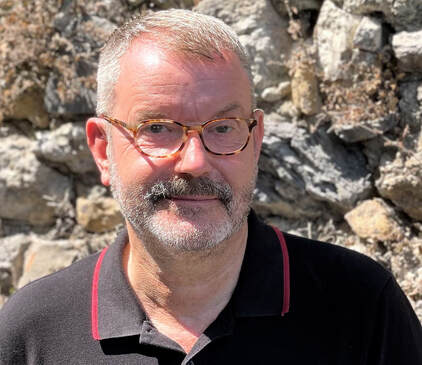

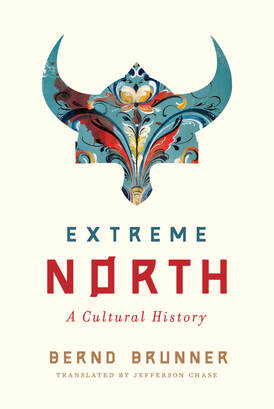
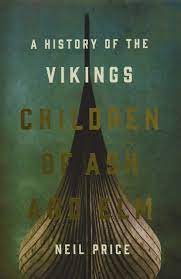
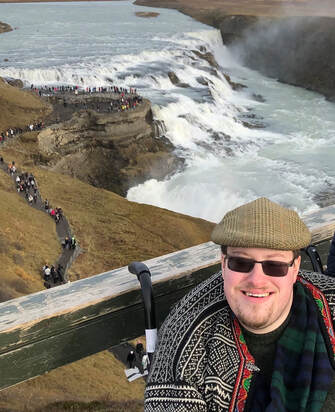
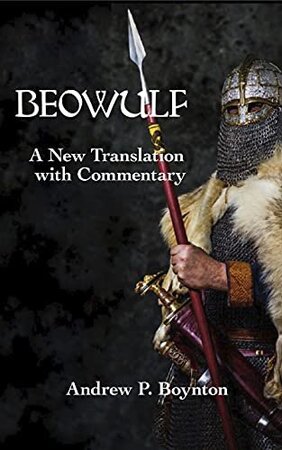
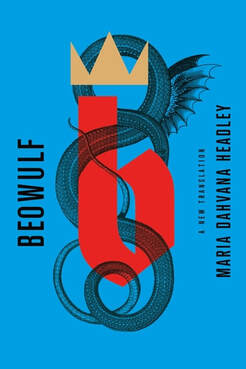
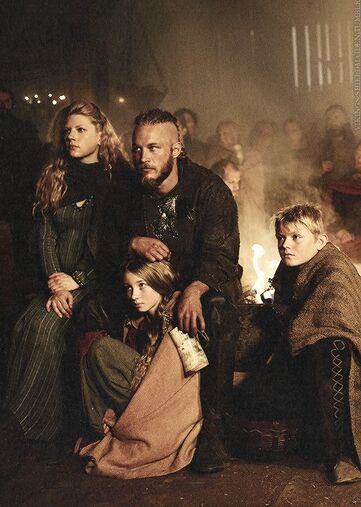

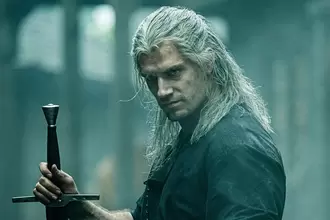
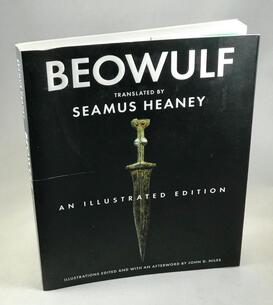
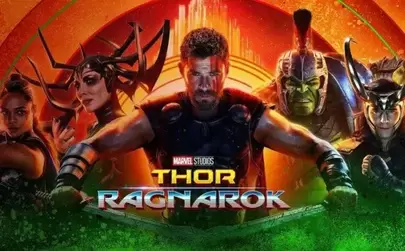
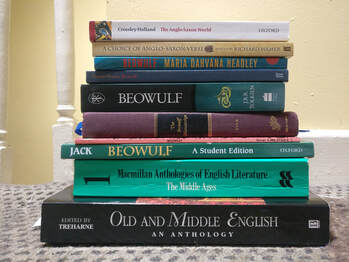
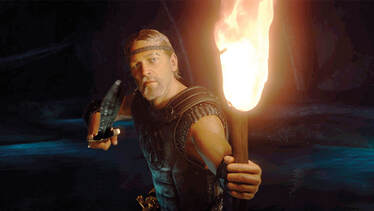
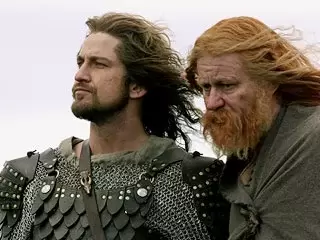
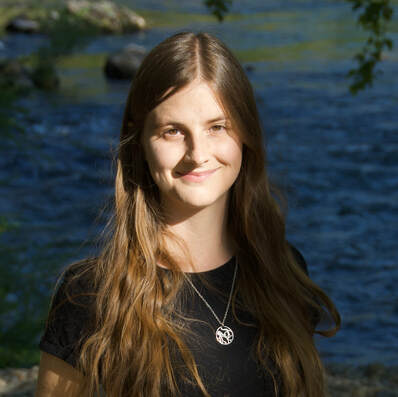
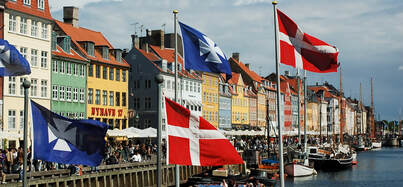
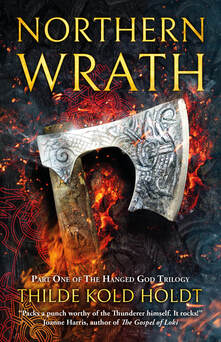
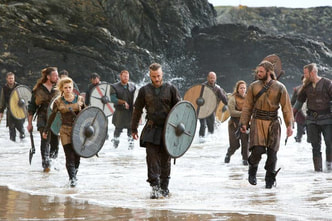
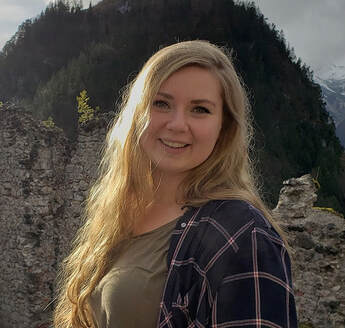

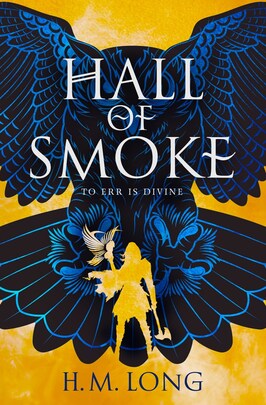
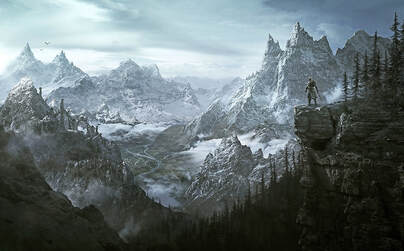
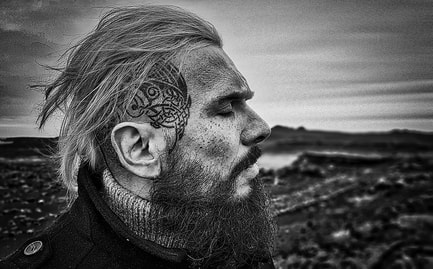
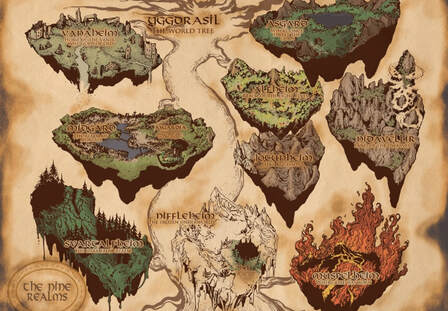
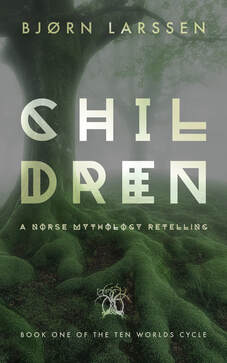
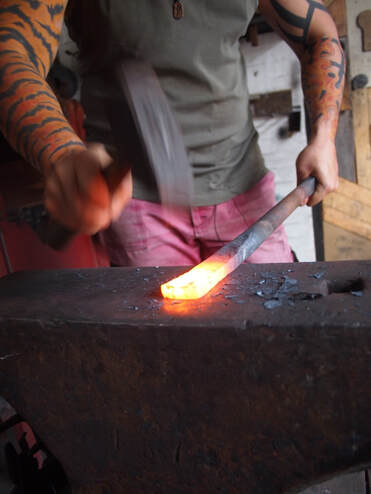
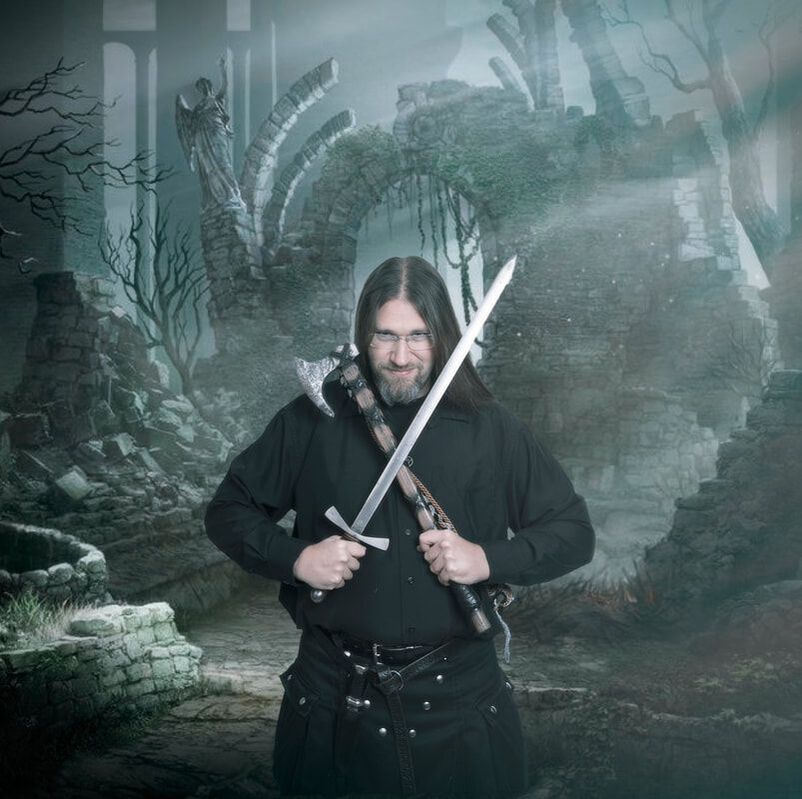
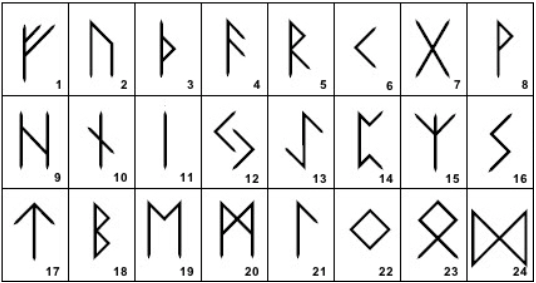

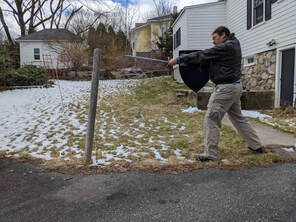
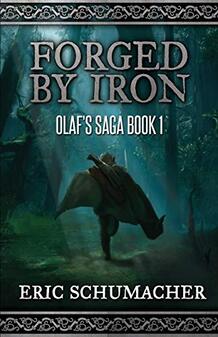

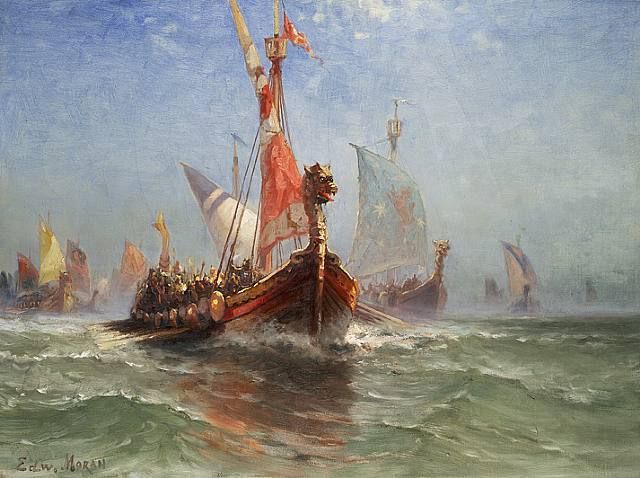

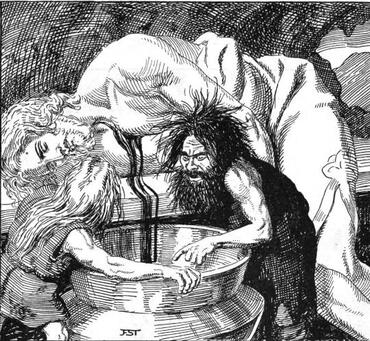
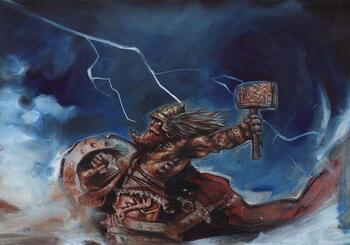
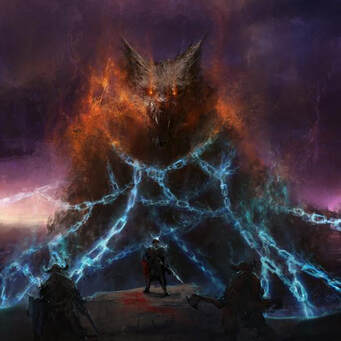
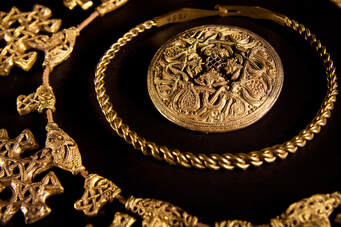
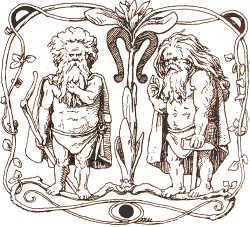
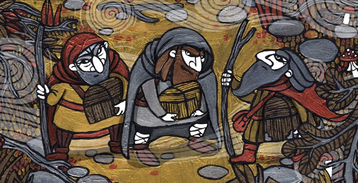
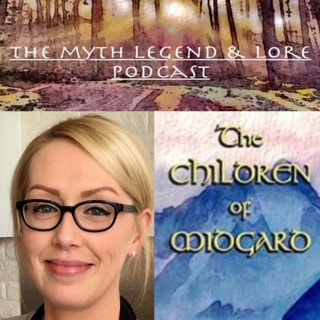

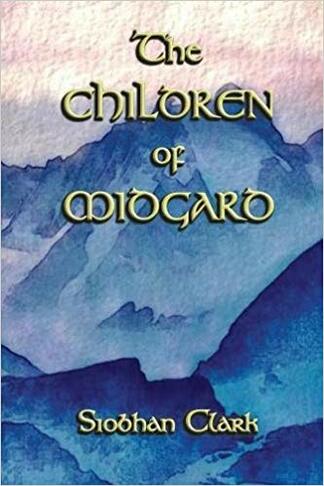
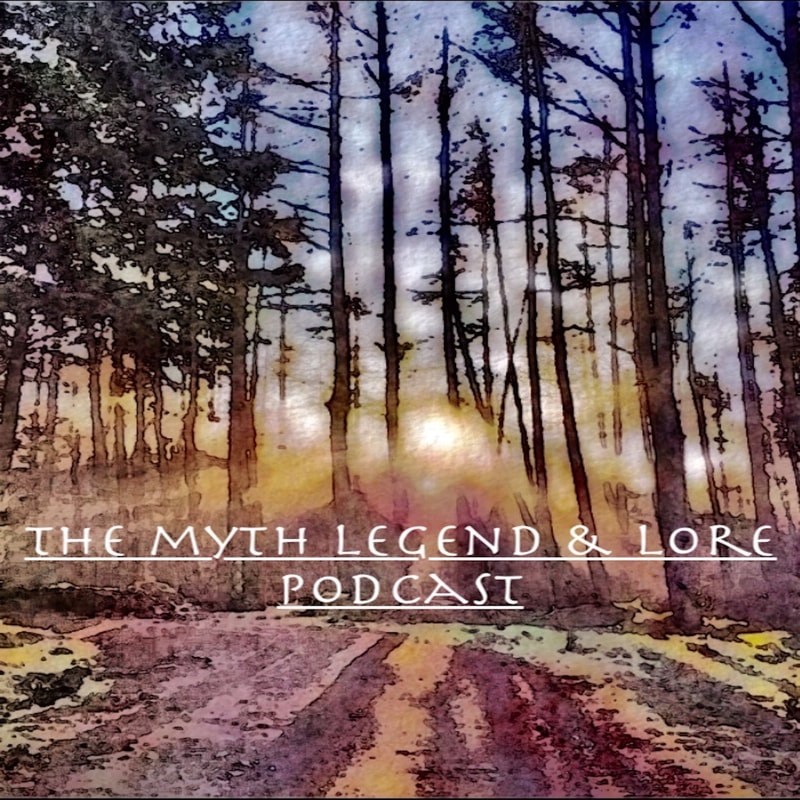
 RSS Feed
RSS Feed
